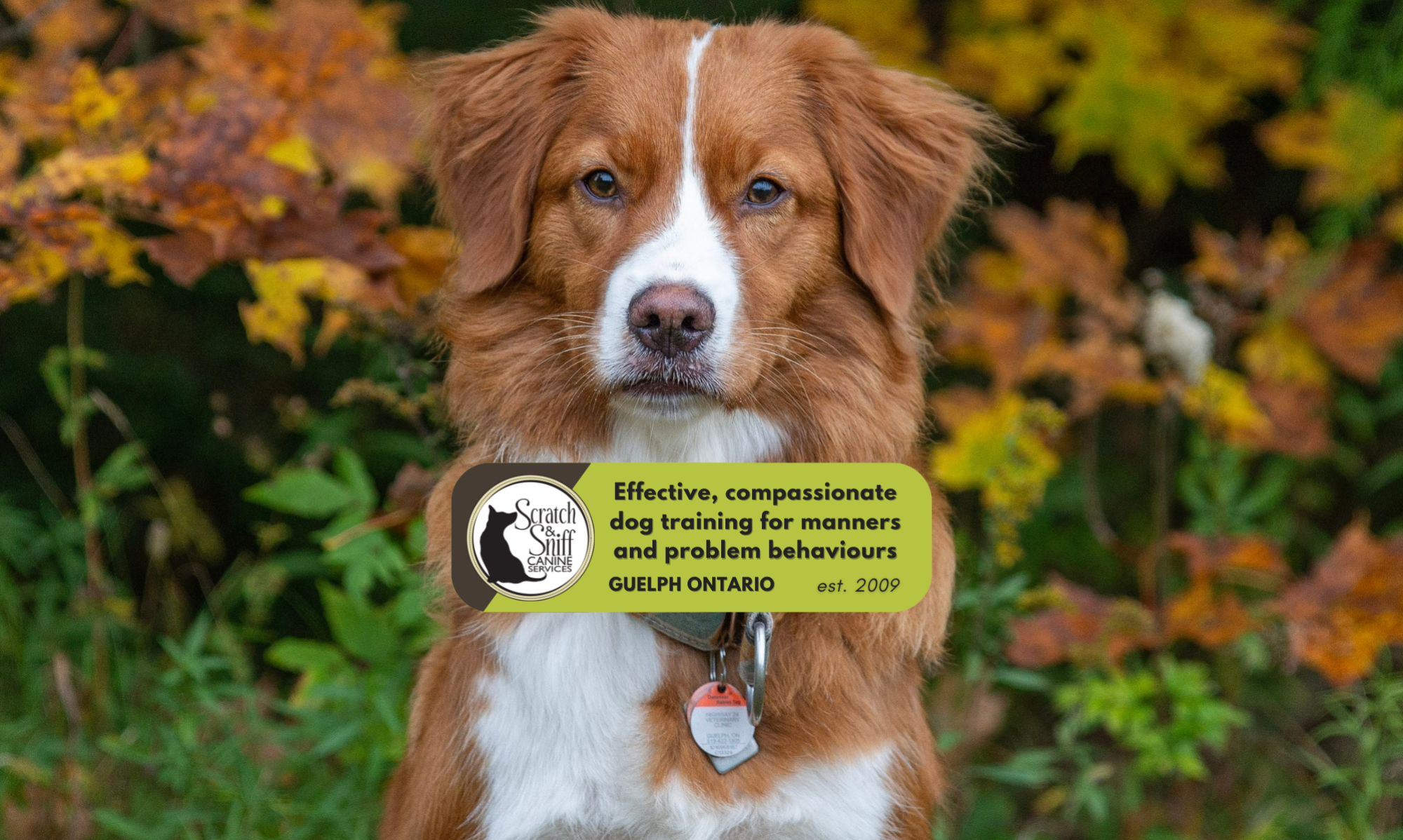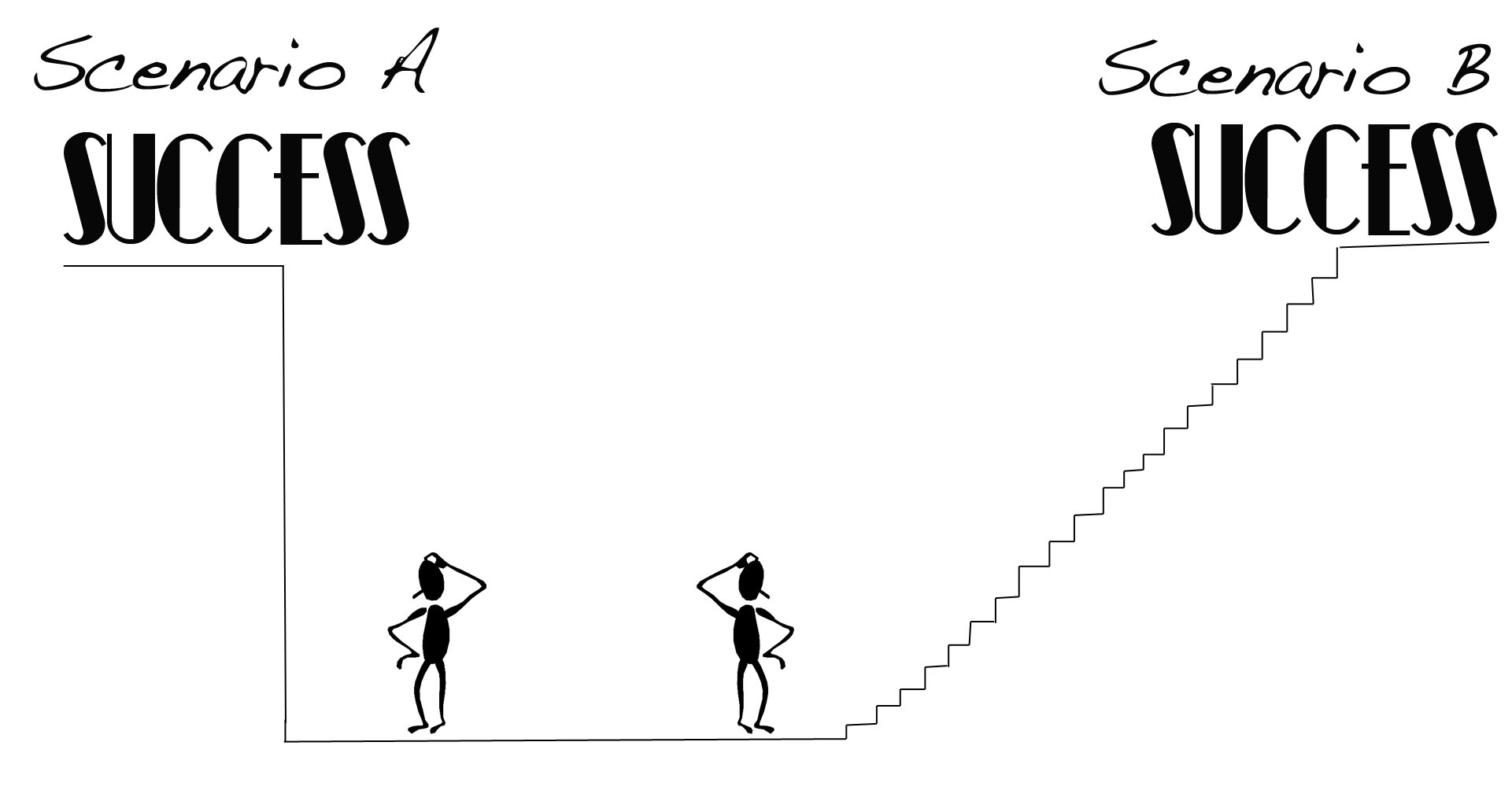How you define success determines its existence; it doesn’t exist until you learn to see it. Success is critical to dog training, but like the mechanics of training, seeing success is a skill that requires development – both in definition and process. Whether or not a person can acknowledge success and what they expect it to look like has profound implications for the outcome of and commitment to training.
In which scenario is this little person most likely to succeed?



